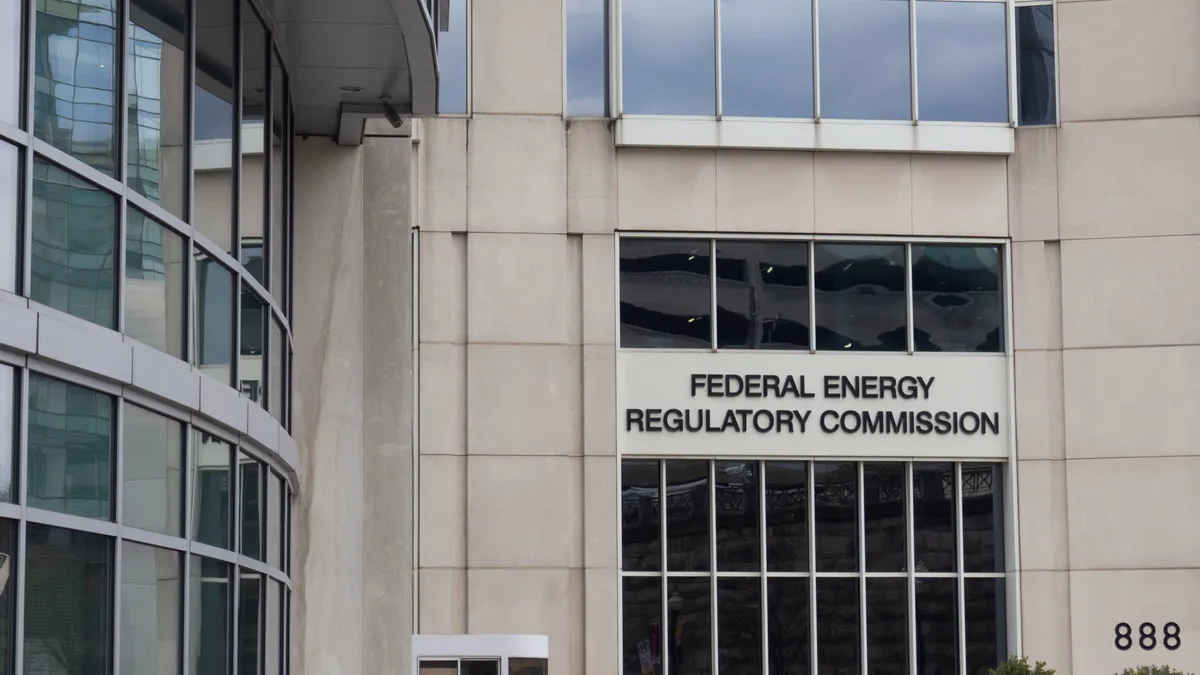Dive Brief:
- The Department of Energy's assessment of a national security threat goes beyond grid reliability assessments from the federal government and regional grid operators, DOE Assistant Secretary Bruce Walker told Utility Dive Friday.
- The North American Electric Reliability Corp. (NERC) and regional grid operators say U.S. grid reliability is not at risk in the short term, but Walker said those entities may not "have the visibility or the proper information to determine if something is a national security issue."
-
DOE's view of a national security threat is expected to be central to its evaluation of a coal and nuclear bailout proposal from generator FirstEnergy, as well a request from Sen. Joe Manchin (D-WV) to use the agency's authority under the Defense Production Act to support failing generators.
Dive Insight:
Back in February, Walker told Utility Dive DOE "would never use" its emergency powers under Section 202(c) of the Federal Power Act to "stave off an economic issue" causing plants to retire.
"That's not what it's for," he said.
But DOE may not view the FirstEnergy request as an economic issue, despite the company only asking for cost recovery at plants that are uncompetitive in wholesale power markets.
Earlier this month, Secretary of Energy Rick Perry told Utility Dive that economics are not "the issue" in that evaluation, instead focusing on national security concerns regarding plant retirements.
Walker declined to comment on Perry's remarks due to the pending FirstEnergy request, but he said the DOE looks at a variety of options to ensure national security, including 202 orders and the Defense Production Act, a 1950s statute that allows DOE to nationalize critical energy infrastructure during wartime.
"We look at every option we've got in regard to ensuring national security on a daily basis so the Defense Production Act is just one of many authorities that the DOE has," he said.
The coal lobby and its allies, like Manchin, argue their plant retirements constitute a national security issue because the grid could not remain reliable if all of their generators went offline. But that's not a concern reflected in independent assessments from NERC and regional grid operators, who say the grid is reliable today and envision a significant, albeit diminished, role for coal generation for years to come.
Asked if national security can be threatened when grid reliability is not, Walker said the assessments from NERC and others are only one part of his agency's evaluation.
"National security is something that incorporates many different things and requires the visibility of various agencies within the federal government," he said. "I don’t know that the RTOs or NERC have the visibility or the proper information to determine if something is a national security issue."
"NERC and the RTOs are responsible to run systems reliability and they have visibility of certain things," Walker said. "You might well imagine that with the various intelligence agencies we have throughout the federal government as well as the DOD and a host of others that we have different information and different responsibilities, which are clear, than the RTOs and NERC."
Similar security and reliability concerns are the focus of a proceeding on grid resilience at the Federal Energy Regulatory Commission, set up early this year when that agency rejected a coal and nuclear bailout plan from DOE. Earlier this week, FERC Chair Kevin McIntyre said the agency could take action to support those plants if it fears that, as the coal companies argue, an entire category of generating resources could retire.
"Every public servant in America says all-of-the-above," McIntyre told Utility Dive. "If we mean it, should we be troubled of the prospect of any category of generating resources going the way of the dodo bird? If the answer to that question is yes, we have a legitimate basis to be concerned about that."













